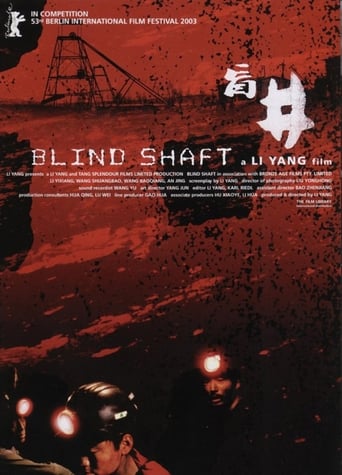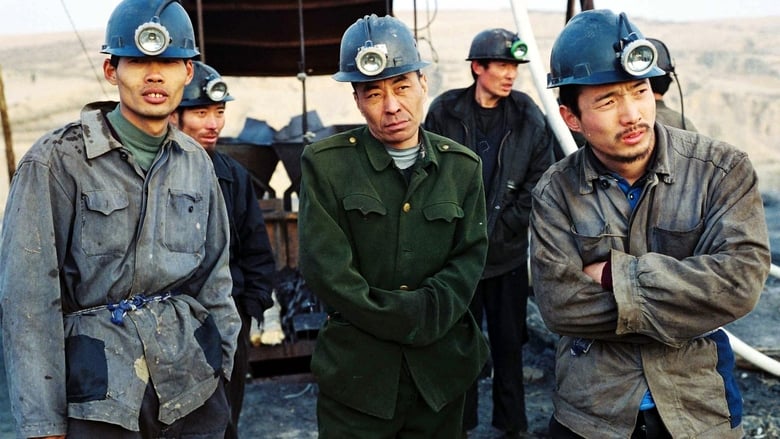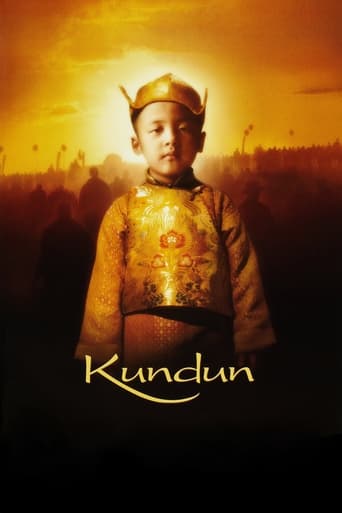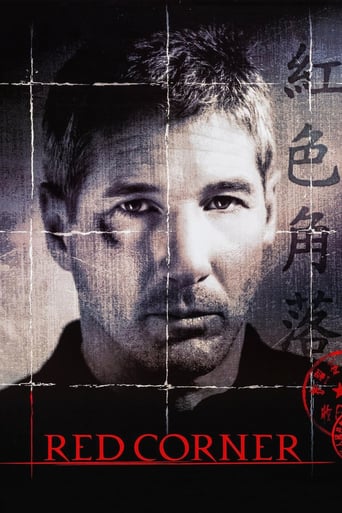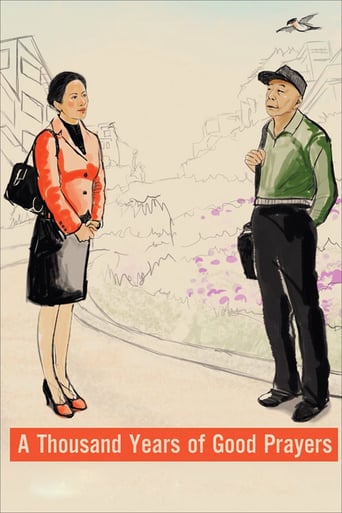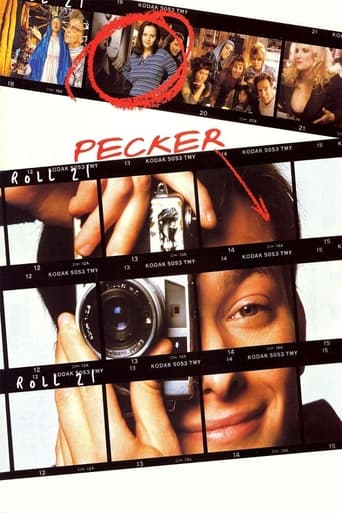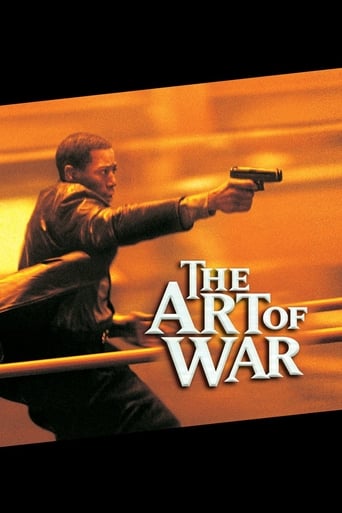Blind Shaft (2003)
Two Chinese miners, who make money by killing fellow miners and then extorting money from the mine owner to keep quiet about the "accident", happen upon their latest victim. But one of them begins to have second thoughts.
Watch Trailer
Free Trial Channels
Cast


Similar titles
Reviews
It is interesting even when nothing much happens, which is for most of its 3-hour running time. Read full review
The story, direction, characters, and writing/dialogue is akin to taking a tranquilizer shot to the neck, but everything else was so well done.
There are moments that feel comical, some horrific, and some downright inspiring but the tonal shifts hardly matter as the end results come to a film that's perfect for this time.
A terrific literary drama and character piece that shows how the process of creating art can be seen differently by those doing it and those looking at it from the outside.
What happened at the start of this movie down in the mine shaft confused me so much I had to go back to the scene and view it again. That really didn't help because it seemed that three men--one very young; another older, perhaps in his early thirties; and the third perhaps in his forties--go down into the coal mine and after working for a while take a break in the semidarkness. And then after some talk the two older men bludgeon the youngest to death.That in fact is what happened. Turns out that drifting miners Tang, the older, and Song have dreamed up a murderous scheme in which they recruit young men to go with them to work in the mines. They make the young man pretend that he is related to them. Then they kill him, fake a cave-in and demand hush money from the boss of the mine. We see this work one time, and then the two men are off to the town to spend their ill-gotten lucre. And then it's back to recruitment and a new mine.Part of the logic of this premise is the fear of the mine operators that if there is an accident, there will be an investigation and the mine will be closed down. So they pay hush money to the families of those killed to keep the authorities away. How realistic this is I have no idea. The scam certainly is a brutal, bestial way to make a living that cannot go on for long.In the next part of the movie Tang and Song find a poor 16-year-old country boy in the city who is looking for work. Director Li Yang carefully shows us a lot of interaction among the three as the next setup develops at a new coal mine. What makes all this so interesting are the glimpses we get of life in modern China, the wretched, dangerous coal mines, the cities teeming with all their poverty and industry, their hustles and indifference. The landscapes are not lush with greenery; instead it is cold and bleak and the ground is mostly barren. This is not a travel log for tourists, nor is this an ode to the communist state. What we see is a rural and agrarian society perverted by a forced industrialization.We see the housing for the miners. We see them at meal times and at play. We see what they eat and drink, how they amuse themselves. We see the great dependence that China has on coal. There is a lot of coal in China and it is used for heating and cooking and for firing kilns and crematoriums. It runs the industrial state. Coal burns dirty and pollutes. Although Li Yang does not dwell on it or show us the poisonous clouds that hang over many Chinese cities, we nonetheless get the picture.Perhaps the most evocative shot of all is the last one. A body with a blanket over it is shoved into the crematorium oven. The door is slammed shut; the fires incinerate. The camera pans up, up to the top of the smokestack and we see puffy tendrils of smoke emitting. That's it. Run the credits.The simplicity of the story starkly told and the low-budget realism of the cinematography lend to this film a sense of truth and immediacy not found in more carefully contrived productions.(Note: Over 500 of my movie reviews are now available in my book "Cut to the Chaise Lounge or I Can't Believe I Swallowed the Remote!" Get it at Amazon!)
Song and Tang are two conmen who make their money through murder and deception. They live among the unemployed drifters of China, latch onto lonely young men, convince them to pretend to be one of their relatives and then the three get a job together in a mine. After a few days, Song and Tang kill their companion and make it look like a cave in - extorting the bosses for compensation in return for silence. They have been doing this for a while to good profit and plan to continue when they pick up the sixteen year old Yuan, creating a moral crisis for Song.I was not sure what this film was about when I sat to watch it but the fact that it had been made as an underground film (literally) without the permission of the Government and that was enough reason for me to give it a bit of my time. As one would expect from such a film, the plot is a mix of narrative and comment. The comment is delivered in the form of us seeing the working conditions and the poverty `enjoyed' by the citizens who are outside of what we would consider the `proper' economic system. In this regard the film is interesting if not totally gripping. The narrative is just as gripping but it is less satisfying as it seems to be secondary to the other aspects of the film. The characters do just enough to carry the story along, in fact they win over the audience well enough for us to care about all the main players - essential in a film that is driven more by them than by action.To that end, the cast (a mix of professionals and non-professionals) deliver the goods pretty well. Yuan's innocence and dedication to the characters is key to the film and Wang carries this off well. The elder Wang is also good but has a simpler character to deliver - however it is to his credit that his `bad' guy never lost my interest. Li is the best thing in the film even if he goes through an fairly recognisable crisis of confidence. Yang Li's documentary background shows through with the realistic direction and the great use of locations - all the more impressive as many of them must have been difficult to shoot in.However, the lack of events means that the narrative is a little less than satisfying when it comes to the end. We more or less know where it is going and the film uses the ending as much as a closure to the narrative as it is a further comment of the people's place within the system. Despite this it is still worth seeing even if it may not match the hype that the awards and reviews on this page would have you believe. Overall a good film that is worthy with good direction and acting even if the commentary of society and narrative don't sit as well together as one would hope.
***SPOILERS*** ***SPOILERS*** Two sequences hold the key to the Real of what Li Yang's debut is about. One is about the scene, in which the prostitute who deflowers Feng, pumps into him in a post office, ambiguously greeting him by sliding her hand through his shoulder. When she walks away, Feng turns his head over and looks at her backside with a bit sweet smile. In a screening session of the film (in Beijing University, Oct.2003), Li Yang is asked what his intention to incorporate this seemingly irrelevant sequence in the narrative. His answer is that his mode of film making is not Hollywood style - the transparent narrative which strictly follows cause-and-effect lineage narrative. The second one is about the end, in which Feng sees off Zhang and Wang at the site of a crematorium, ambiguously watching their bodies being pushed into the furnace (a MC shot of the foot when the body is pushed into the furnace), followed by a MC shot of the black smoke. Li Yang is criticized to make this scene rather redundant and sentimental.To me, this end is the key to the Real of the diegetic reality, which answers the first sequence in question as above mentioned. In fact, there are mutual blind spots in the eyes of these two parties. If one looks at the depiction of Feng purely from the perspectives of Zhang and Wang, Feng's pleasant reminiscence of his first sexual encounter with a whore, is actually invincible to Zhang and Wang. Similarly, one could find another blind spot in the eyes of Feng as well, regarding the story of Zhang and Wang. The trust of Feng in Zhang and Wang is sustained until the moment Zhang hit the head of Wang. Although the audience is very clear about the motivation disclosed by the narrative's all-knowing point-of-view (pov), it is opaque to Feng. The final scene in the shaft, if one follows strictly from the perspective of Feng, logically would leave the impression on Feng that these two adults have some conflicts unknown to him, and he accidentally witnesses the murder of Wang.Such a mutual mis-recognition, of course, is presupposed by Li Yang, from which the director's subjectivity emerges. It is true that the narrative presents a simple moral view of life that the evil will be finally punished. The all-knowing pov, like a spectre smoothly wondering around and showing every aspect of characters to the spectator, plays an important role in leaving such a impression. The benefit of such a all-knowing pov is that the director can create an illusion which satisfies the latent desire of the audience - bad guys must be punished. Scrutinizing the narrative closely, one could find that the existence of the real law is suspended in the diegetic reality.Li Yang has emphasized Feng's innocence by depicting his love of reading historical books, the responsibility for his family, his sympathy to a child begging in the street, and his respect for the adult. The forced choice to have a sex with a prostitute, although is planned by Zhang and Wang, is actually a contingent act in Feng's life as he does not know their intention. He most likely would think that they want him to pass a kind of ritual, so he can be treated by them as an adult. Retrospectively, it is discernible that Feng actually enjoys having a sex with a whore so he smiles later when he is alone in a bathtub. Therein resides the significance of a seemingly irrelevant sequence of Feng's rendezvous with the same prostitute in a postal office. Isn't Feng's ambiguous look at her walking off betrays his desire for her, which no longer completely renders him shameful as before? It is from this sequence that a kind of motion or the transference is set off, in which the attitude of life from Zhang and Wang starts to be assimilated into Feng. Only with this implicit transference in mind, can the significance of the end be discernible. If Feng's forced choice to have sex with a whore opens his vision of life, as a kind of unexpected enlightenment by the reign of Eros, then the diminish of Zhang and Wang's body into a black smoke corresponds to the reign of Thanatos (God of Death). It is worth emphasizing that the Real of the narrative is that Feng has no idea about two adults' murderous plan, yet the diegetic reality is that the moral lesson is still imposed by an accident, which in fact is the displacement of the law with the Freudian-Lacanian notion of the Thing.The evaporation of these two adults' corpses in the end creates a void, from which the Thing emerges, just like the spectre of the first victim in the beginning returns as the all-knowing pov. Therein resides the meaning of Feng's look at the black smoke as a witness of their death. He will be haunted by the spectre of the dead forever, because the Real of their death is unknown to him. This blind spot is strictly from the perspective of Feng, which is not in coincidence with the illusion created by all-knowing pov of the narrative. It is discernible only by looking awry from the perspective of Feng, and the gap between the Real and the diegetic reality is caused by what Freud designates as the death drive. Several film directors, such as Hitchcock, Kieslowski, and David Lynch, have passionate attachment to this gap - the death drive that resists the overlapping of the Real with the reality, and now a Chinese director seems to be a potential one to join this club. More importantly, Li Yang's insistence has appeared from acute social awareness of current problems of illegal coal mining in China, which becomes the convincing and catchy backdrop of a fictive story.
Mesmerizing and stark. Yang Li's documentary background is reflected in the ultra realistic look and feel of the film. Powerful and no b.s. It reminded me of the best of U.S. films from the 1970's. One particular sequence recalled The Last Detail but with higher stakes. This should be an influential film, however, it probably won't get the exposure it deserves.

